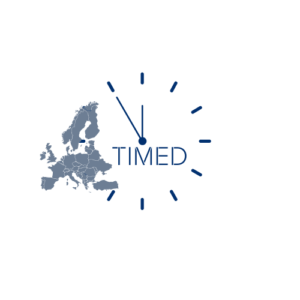
TIMED: TIMe experience in Europe’s Digital age
During the last two decades, there has been a significant increase in the use of digital technology in our work, social and personal lives. As a result, many people now live in a state of “permanent connectivity” which enables them to be contacted at anytime, anywhere, and to seek information and stimulation with greater ease and immediacy than ever before. As a result, the traditional boundaries between work-time and personal-time can appear evermore blurred and the pace of life can feel increasingly fast. This is in part because the rhythm of daily life is now dictated by digital devices.
Exactly how increasing digital technology use is affecting the availability of time, our use of time and experience of temporality is currently unknown. At an individual level, it is unclear whether digitalisation is enhancing time availability and wellbeing or reducing free time and quality of life. At a societal level, it is unclear whether increased digitalisation is having a unifying or divisive effect on the European sense of time.
The TIMED project will establish how and why the perception, use and allocation of time are affected by personal levels of digitalisation and cultural norms, and how this then impacts on quality of life. This will be achieved through a series of studies using interviews, online questionnaires, psychophysiological recording and real-time behaviour analysis. Data will be collected in the Czech Republic, Germany, Poland, Spain, Switzerland and the UK to enable cross-cultural comparisons within Europe.
The information generated in the TIMED project will enable us to, for the first time, establish how digitalisation affects individual and societal temporal experience. In doing so, the project will identify who is experiencing a temporal benefit from digitalisation, and who experiences a temporal cost. This information will have significant implications for the health, wellbeing and economic activity in the digital age. It will also help to shape a future in which we are better to maximise the benefits of increased digitalisation on temporal experience whilst mitigating against the costs of an ever more connected life.
CONSORTIUM:
- Project Leader: Ruth Ogden, Liverpool John Moores University, School of Psychology, United Kingdom, e-mail
- Nuria Codina, University of Barcelona, Social Psychology and Quantitative Psychology, Spain, e-mail
- Vanda Černohorská, Institute of Philosophy of the Czech Academy of Sciences, Centre for Science, Technology, and Society Studies, Czechia, e-mail
Filip Vostal, Institute of Philosophy of the Czech Academy of Sciences, Centre for Science, Technology, and Society Studies, Czechia (in the role of PI from October 2022-May 2023), e-mail - Chantal Martin-Soelch, University Fribourg, Psychology, Switzerland, e-mail
- Marc Wittmann, Institute for Frontier Areas of Psychology and Mental Health, Germany, e-mail
- Joanna Witowska, University of Warsaw, Faculty of Psychology, Poland, e-mail
- Omar ABOU KHALED, HES-SO / HumanTech Institute HES-SO / HumanTech Institute, Switzerland
COOPERATION PARTNERS:
- Anna Mowbray, The Community Trade Union UK
- Partick Roach, NASUWT The Teachers Union
- Allison Roach, Unison
- Dietrich Henckel, German Society for Time policy (DGfZP)
- Vit Samek, Czech-Moravian Confederation of Trade Unions
- Dr Jame Nye, The Antiquarian Horological Society
- Lianne Kerlin, BBC
- Dominique de Quervain, EPFL: Stress Network
- Abigail Gilbert, Institute for the Future of Work
- Nadia Ranceva, Alder Hey Children’s NHS Foundation Trust
- Dr Louise Theodosiou, Manchester Foundation NHS Trust
 Start date
Start date
28 October 2022
 Project duration
Project duration
36 months
 Project budget
Project budget
€ 1 561 444
Funding organisations

![]()
![]()
![]()
![]()
![]()
![]()